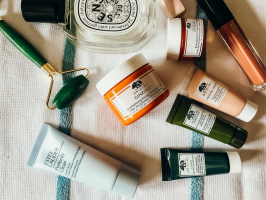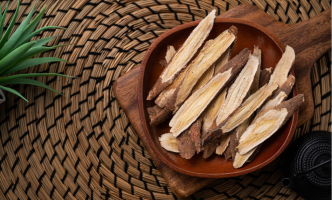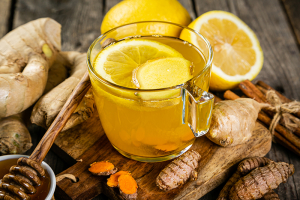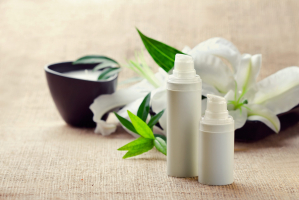Top 9 Best Natural and Home Remedies for Ulcers
Ulcers are sores that can develop in different parts of the body. The lining of the stomach is one of the many parts of the body where ulcers can form. The ... read more...pain and other ulcer-related symptoms might be reduced using some natural home treatments. Scroll down for more information!
-
A well-known natural ulcer remedy is cabbage. Long before the advent of antibiotics, doctors reportedly used it to treat stomach ulcers. It contains a lot of vitamin C, an antioxidant that has been demonstrated to help treat and prevent H. pylori infections. Stomach ulcers are most frequently brought on by these infections.
In fact, some research on animals have demonstrated that cabbage juice is useful in both treating and preventing a range of digestive ulcers, including those that affect the stomach. Early research on humans revealed that fresh cabbage juice drinking on a regular basis appeared to speed up the healing of stomach ulcers more quickly than the conventional treatment at the time. After receiving therapy for 7 to 10 days, these participants' ulcers often healed. This is between 3.5 to 6 times quicker than the typical healing time observed in earlier research in patients who had conventional therapy.
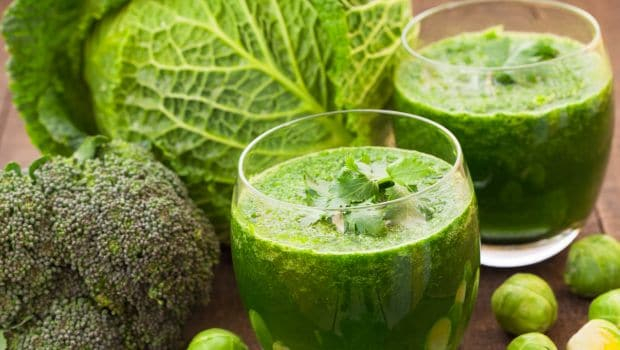
Cabbage Juice 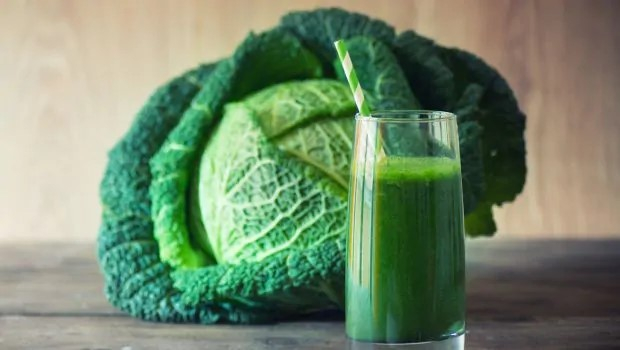
Cabbage Juice -
Licorice is a well-known traditional herbal remedy used to cure a variety of diseases, and it is made from the dried root of the Glycyrrhiza glabra plant. Licorice root may have abilities to both prevent and treat ulcers, according to certain research.
Licorice could encourage the production of more mucus in the intestines and stomach, which helps in protecting the stomach lining. Additionally, the extra mucus can speed healing and ease discomfort brought on by ulcers. Researchers also claim that certain licorice compounds may inhibit the development of H. pylori. However, studies rely on the usage of these substances as supplements. Therefore, it's uncertain how much dried-licorice root would need to be consumed for someone to get the same benefits. Keep in mind that licorice can have side effects on the body, including muscular soreness and numbness in the extremities. Before increasing the amount of licorice in your diet, think about consulting your doctor.

Licorice 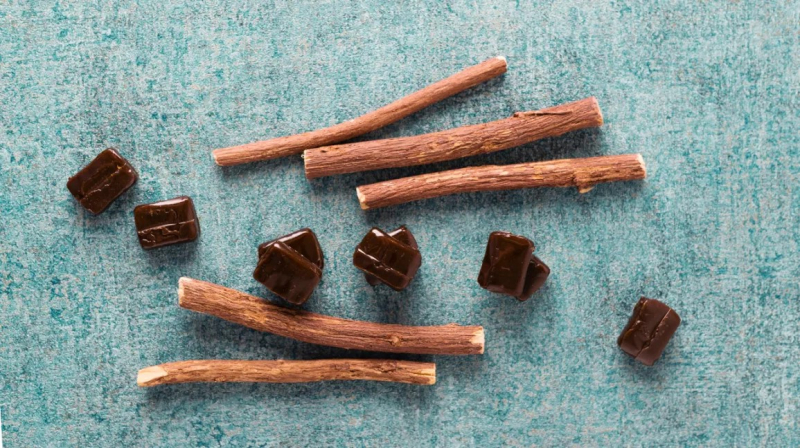
Licorice -
Antioxidant-rich foods like honey have been linked to a number of health benefits. Improved eye health, a lower chance of heart disease, stroke, and even some types of cancer are some of these benefits.
Since ancient times, honey has been utilized to cure a wide range of illnesses in Ayurvedic medicine. Honey may soothe the throat and lessen the symptoms of acid reflux, according to some studies and anecdotal evidence. Additionally, honey appears to prevent the formation and promote the healing of many wounds, including ulcers. Additionally, researchers believe that honey's antibacterial properties might aid in the battle against H. pylori, one of the most prevalent causes of stomach ulcers. Honey can speed up healing and decrease ulcer risk is supported by a number of research conducted on animals. However, human studies are required.
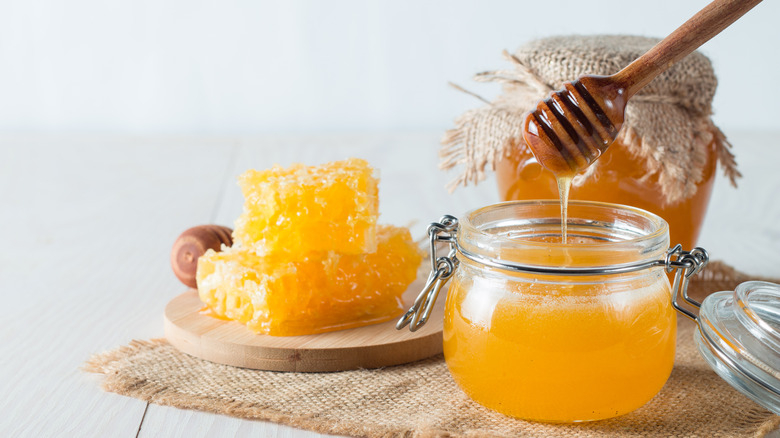
Honey 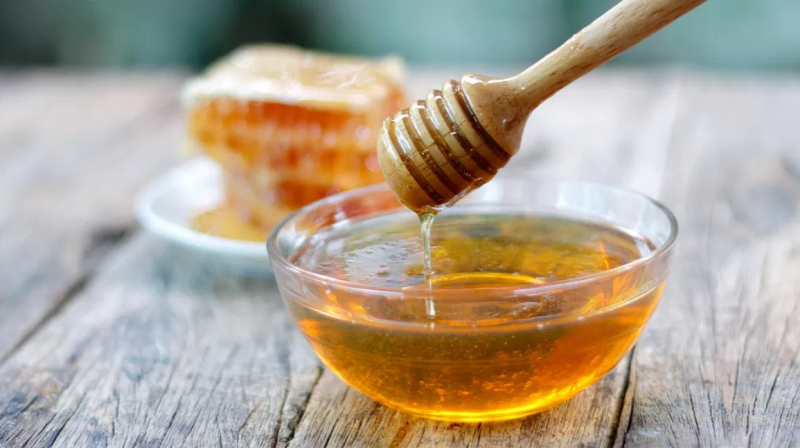
Honey -
Natural remedies are proven to help relieve the pain and discomfort brought on by stomach ulcers. One of the most effective methods you may use to treat the condition is garlic.
Garlic has antimicrobial and antibacterial properties. Garlic extracts have been shown in animal studies to speed ulcer recovery and even lower the risk of ulcer development altogether. Additionally, research in the lab, on animals, and in people suggest that garlic extracts may help prevent the growth of H. pylori, one of the most prevalent causes of ulcers. In one recent research, individuals with H. Pylori infection who consumed two raw garlic cloves daily for three days had a substantial decrease in the number of bacteria in their stomach lining.
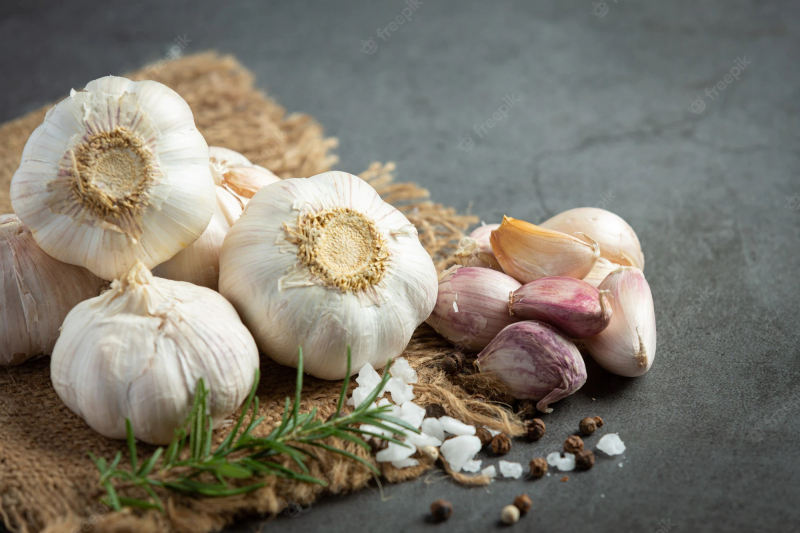
Garlic 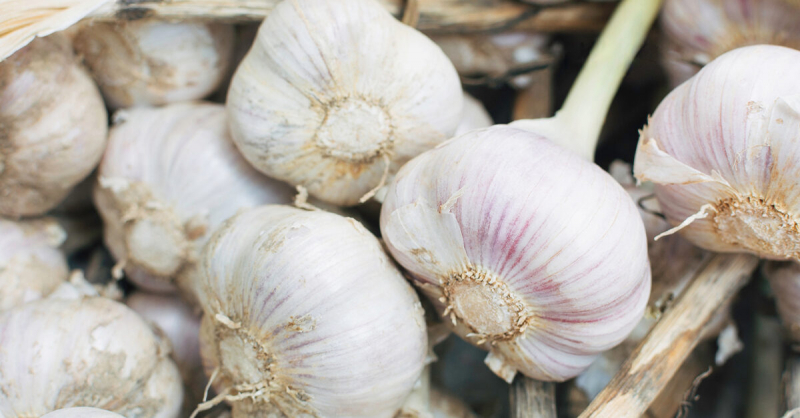
Garlic -
South Asian spice known as turmeric is found in many Indian recipes. Its vivid yellow color makes it simple to recognize. The active component of turmeric, curcumin, has been said to have therapeutic benefits.
Animal studies on the anti-ulcer potential of curcumin have recently been undertaken. It seems to have great therapeutic potential, particularly for reducing the damage brought on by H. pylori infections. Additionally, it could encourage the production of more mucus, which would effectively protect the stomach lining from irritants. One study gave 600 mg of turmeric five times daily to 25 participants. 48% of participants' ulcers were healed after four weeks. 76% of participants were ulcer-free after 12 weeks.
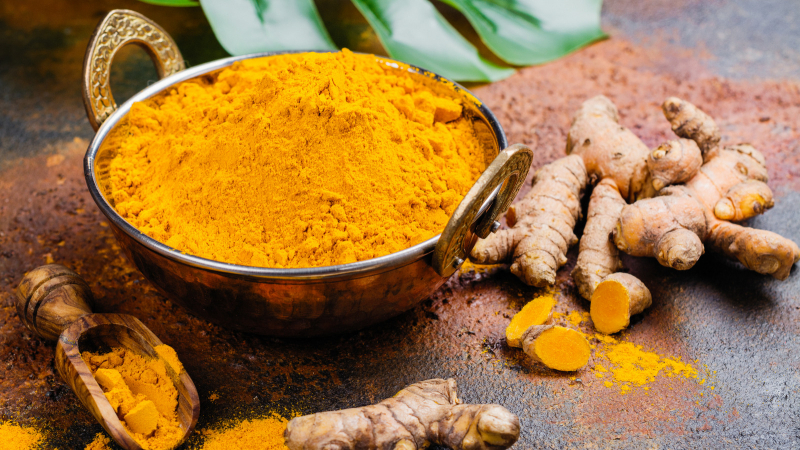
Turmeric 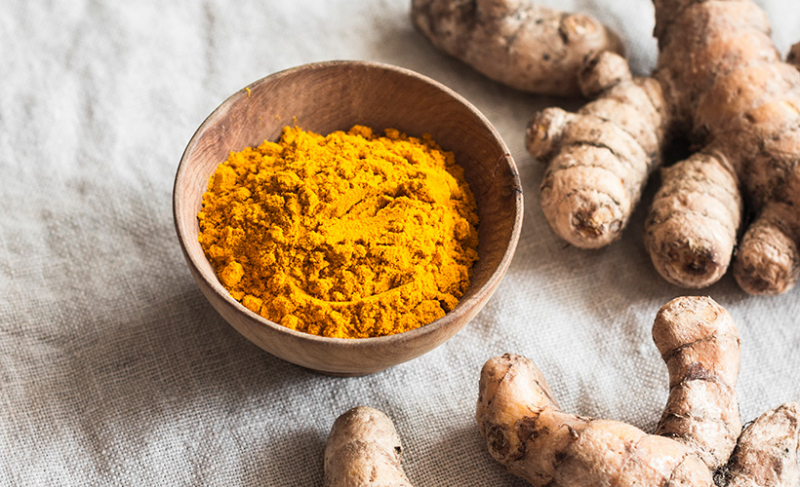
Turmeric -
The Pistacia lentiscus tree, sometimes referred to as the mastic tree, produces mastic, which is a resin. Mastic is also known as tears of Chios, Arabic gum, and Yemen gum.
Mastic has a long history of usage in traditional medicine to treat a variety of gastrointestinal problems, such as Crohn's disease and stomach ulcers. It may act as an effective natural ulcer treatment, according to more recent animal research. In additionally, one study in 38 ulcer-affected participants shows that taking 1 gram of mastic daily reduced ulcer-related symptoms by 30% more than the placebo. By the end of the two-week research period, 70% of people in the mastic group had healed ulcers, compared to only 22% of those in the placebo group.
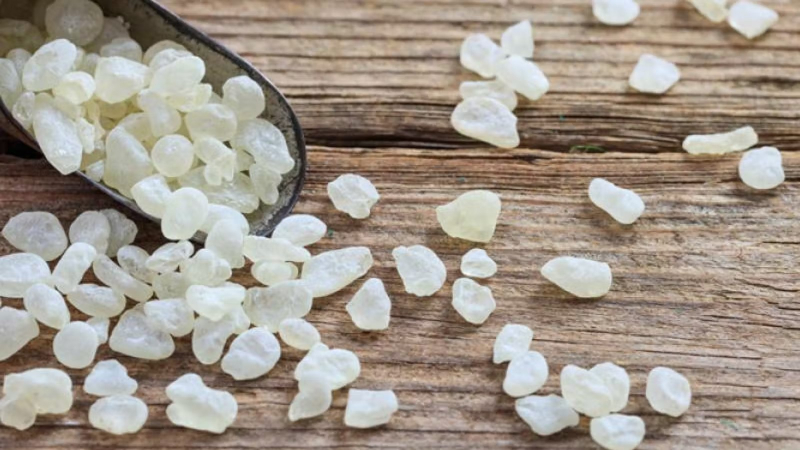
Mastic 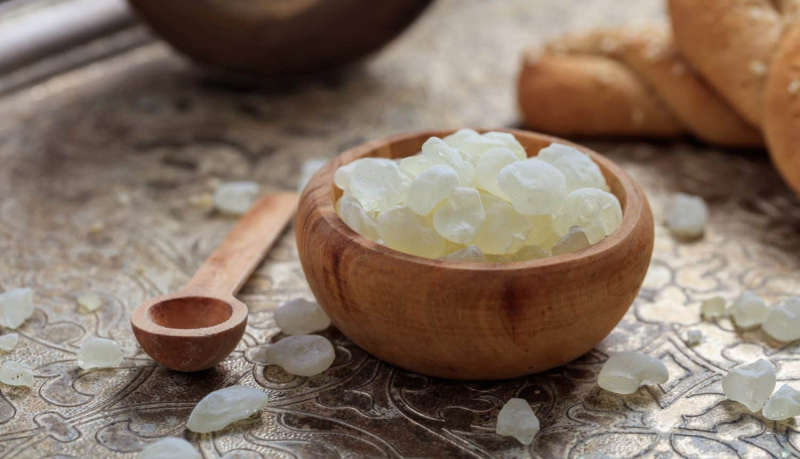
Mastic -
There is a common belief among ulcer patients that consuming chili peppers often or in significant amounts might cause stomach ulcers. In fact, limiting or avoiding chili pepper consumption is frequently recommended for patients with ulcers.
Recent studies suggest that these peppers, however, may actually help prevent ulcers rather than cause them. That's because capsaicin, an active component found in chili peppers, appears to lessen the production of stomach acid and improve blood flow to the stomach lining. Both of these components may help in the prevention or treatment of ulcers. The chili pepper compound capsaicin may also help in boosting mucus production, which can coat the stomach lining and protect it from injury. The majority of animal studies show beneficial effects. But take notice that capsaicin supplements, not whole chili peppers, were used in the above animal research. Such supplements caused some people to have more severe gastrointestinal pain, according to one research. As a result, it could be advisable to stick with whole food and adjust your intake in accordance with your personal tolerance.

Chili Peppers 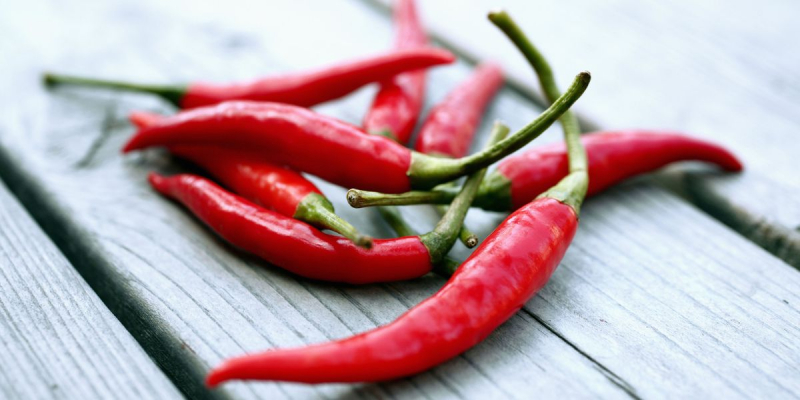
Chili Peppers -
The plant aloe vera is widely used in the food, pharmaceutical, and cosmetic industries. It is well renowned for its ability to heal skin and prevent bacteria. Interestingly, aloe vera may work well as a stomach ulcer treatment.
In one research, rats with ulcers that consumed aloe vera had their stomach acid production dramatically decreased. Aloe vera demonstrated ulcer-healing benefits equivalent to those of the common anti-ulcer medication omeprazole in a different rat study. In one study, 12 patients with stomach ulcers were effectively treated with a concentrated aloe vera drink. Another study found that taking antibiotics together with 1.4 mg/pound (3 mg/kg) of aloe vera daily for six weeks was as effective as the conventional treatment in treating ulcers and lowering H. pylori levels.
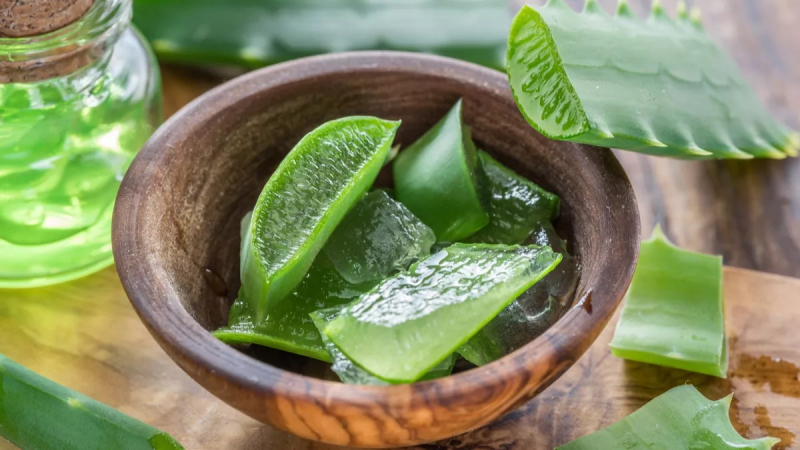
Aloe Vera 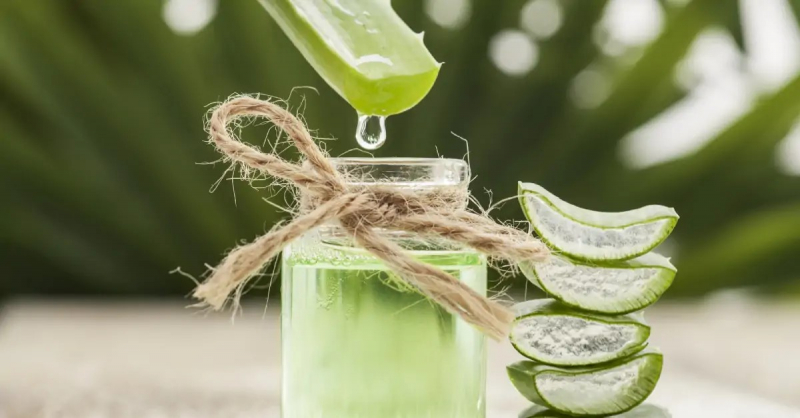
Aloe Vera -
Live microorganisms called probiotics have a variety of positive health impacts. Their benefits include improving mental health as well as gastrointestinal health, which includes the ability to prevent and treat ulcers.
Probiotics appear to increase the production of mucus, which protects the stomach lining. They might also encourage the growth of new blood vessels, which eases the transport of healing compounds to the ulcer site and speed the healing process. Probiotics may also directly contribute to the prevention of H. pylori infections. Furthermore, these helpful bacteria seem to increase the effectiveness of traditional treatments by about 150%, all while lowering diarrhea and other antibiotic-related side effects by as much as 47%. Research is still continuing to determine the dosage necessary for the greatest advantages. However, the majority of the studies mentioned show positive results after consuming 200 million to 2 billion colony-forming units (CFU) for 2 to 16 weeks.

Probiotics 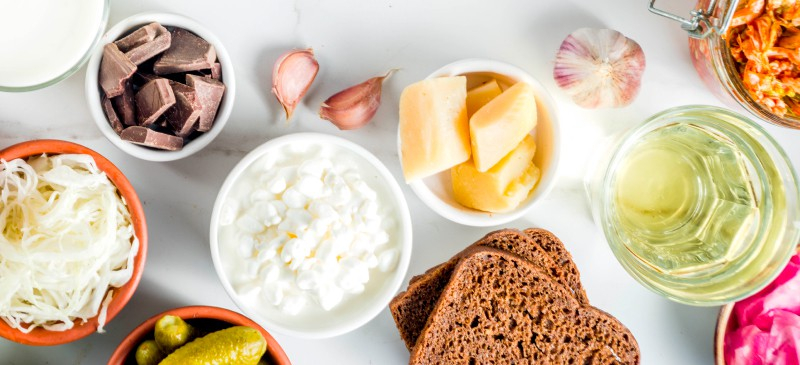
Probiotics
















